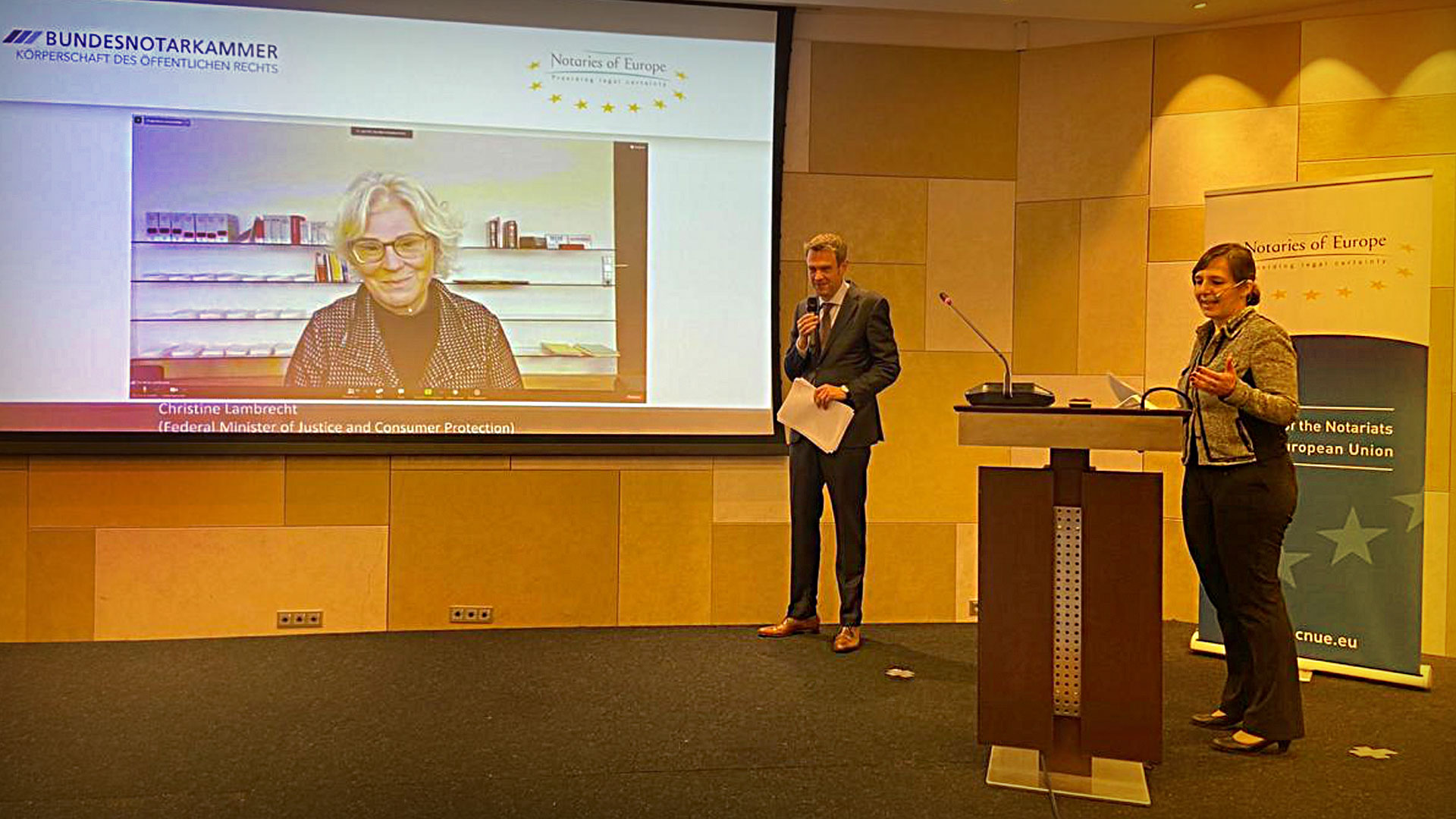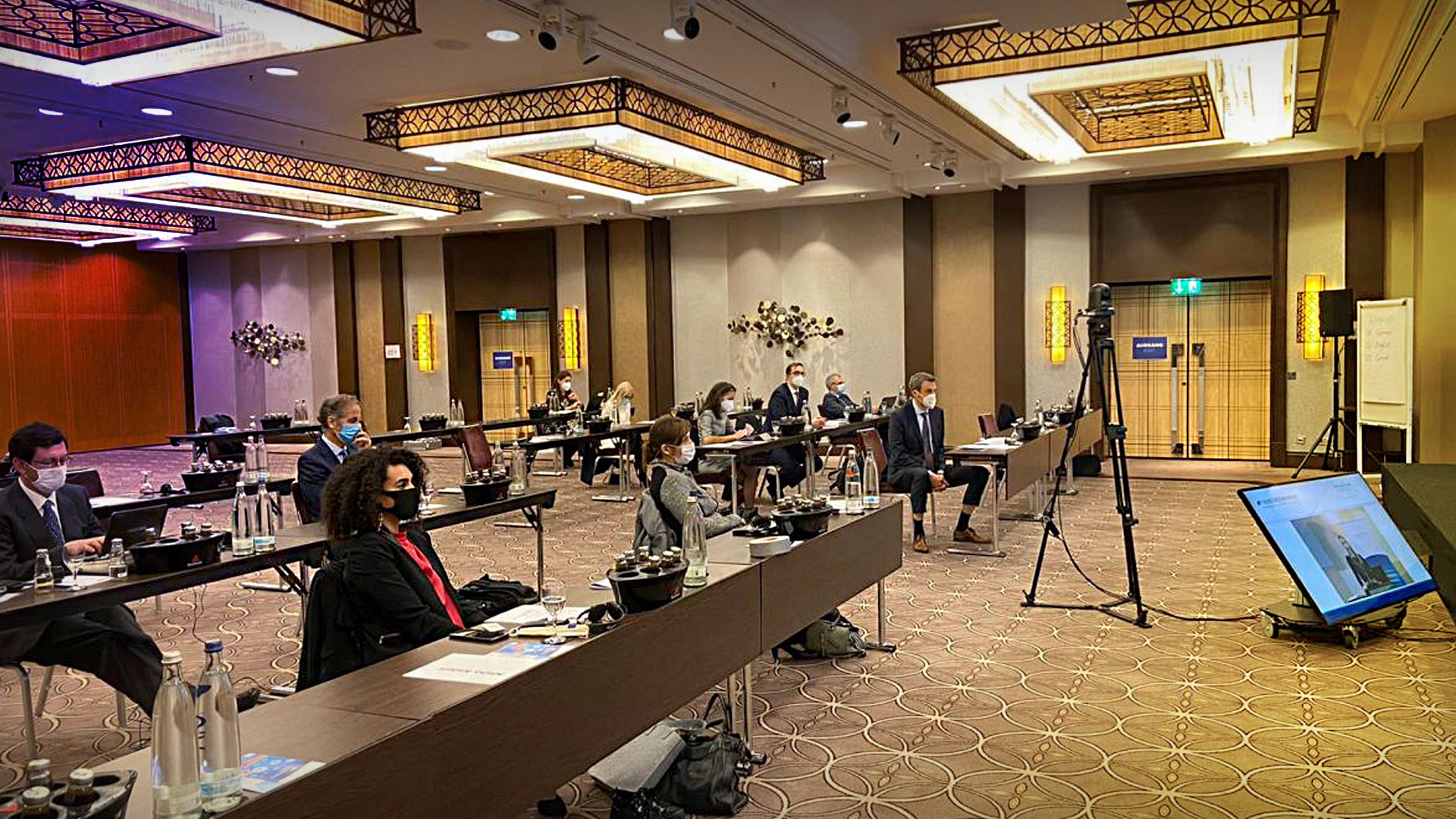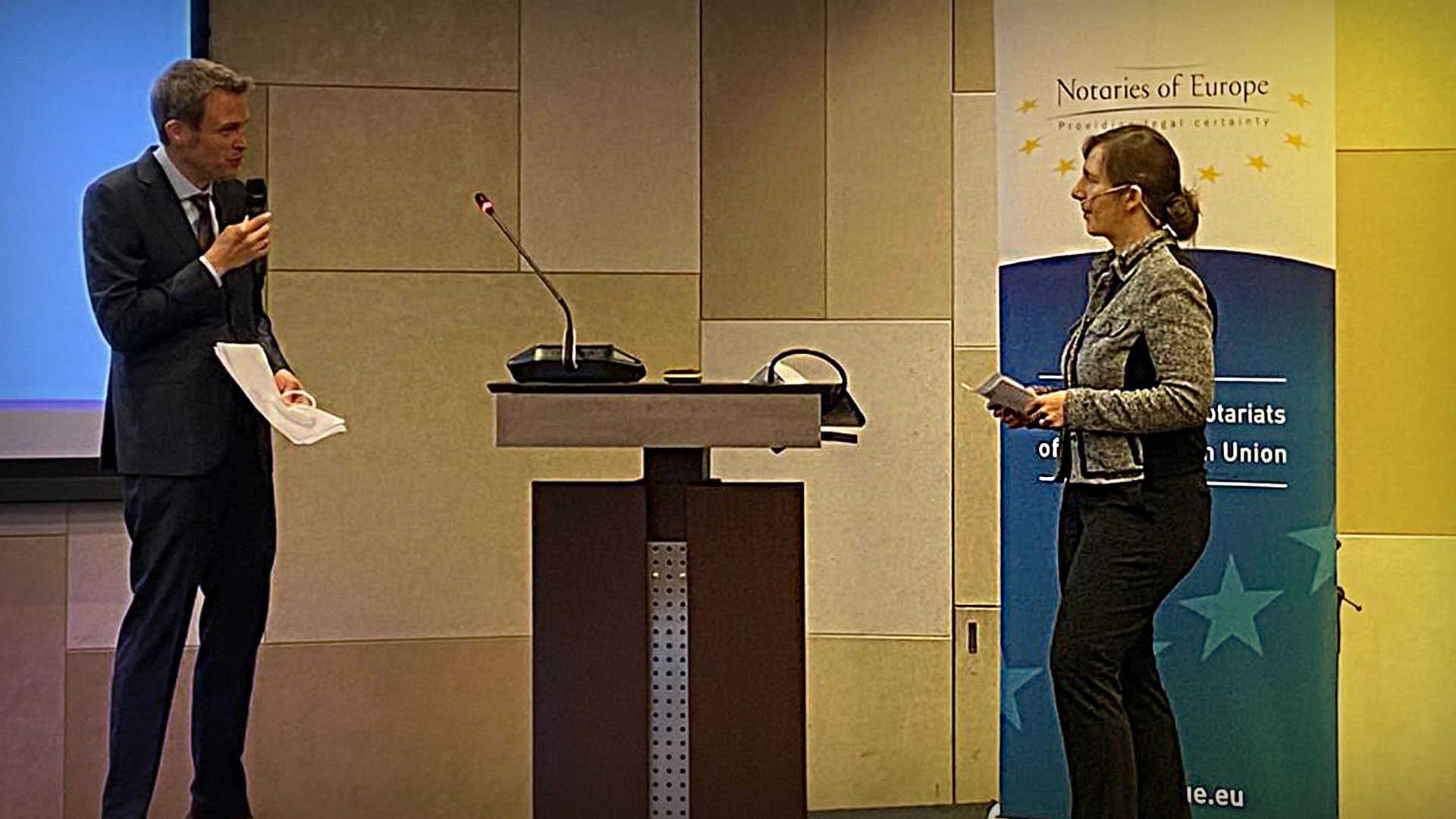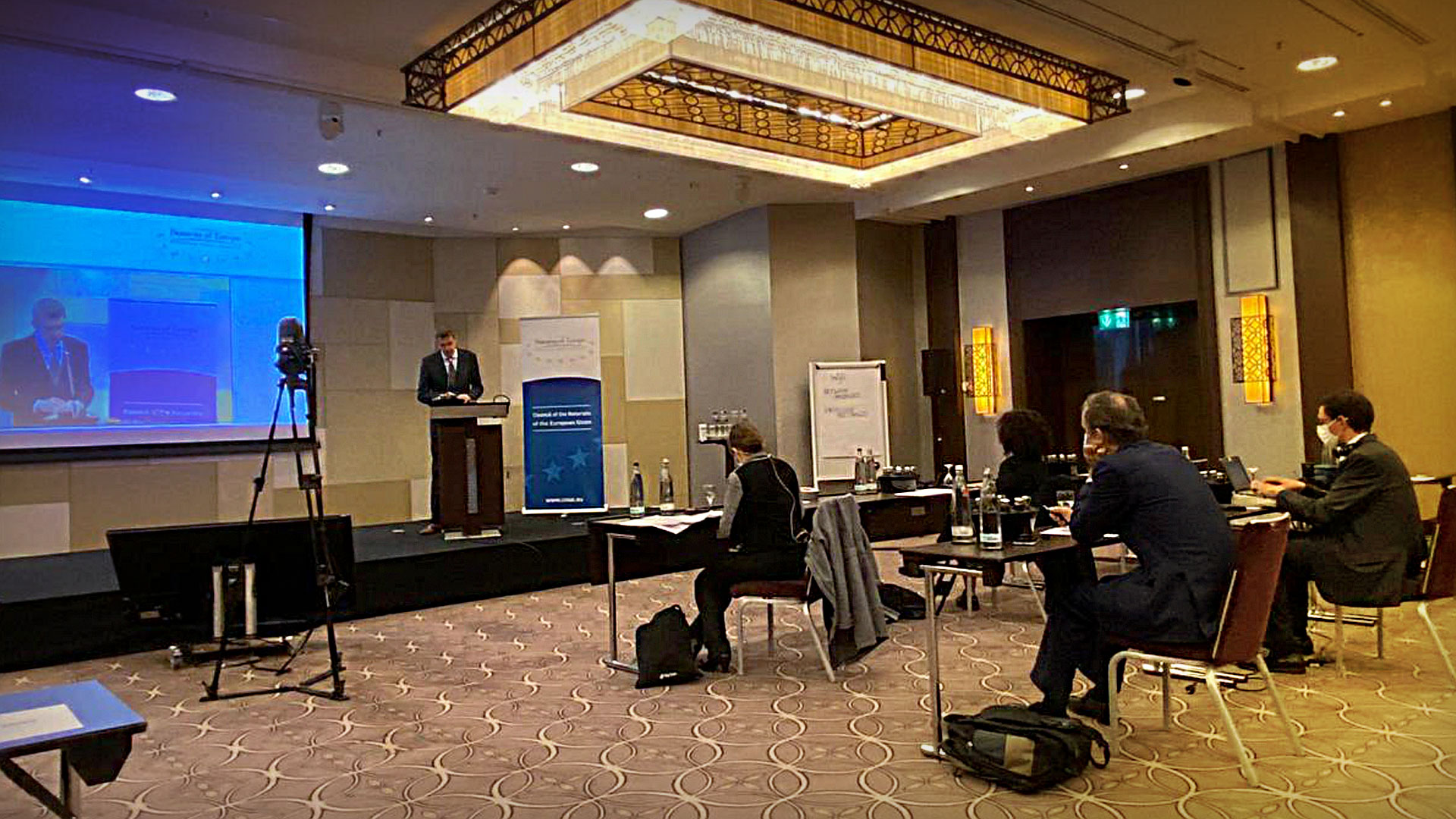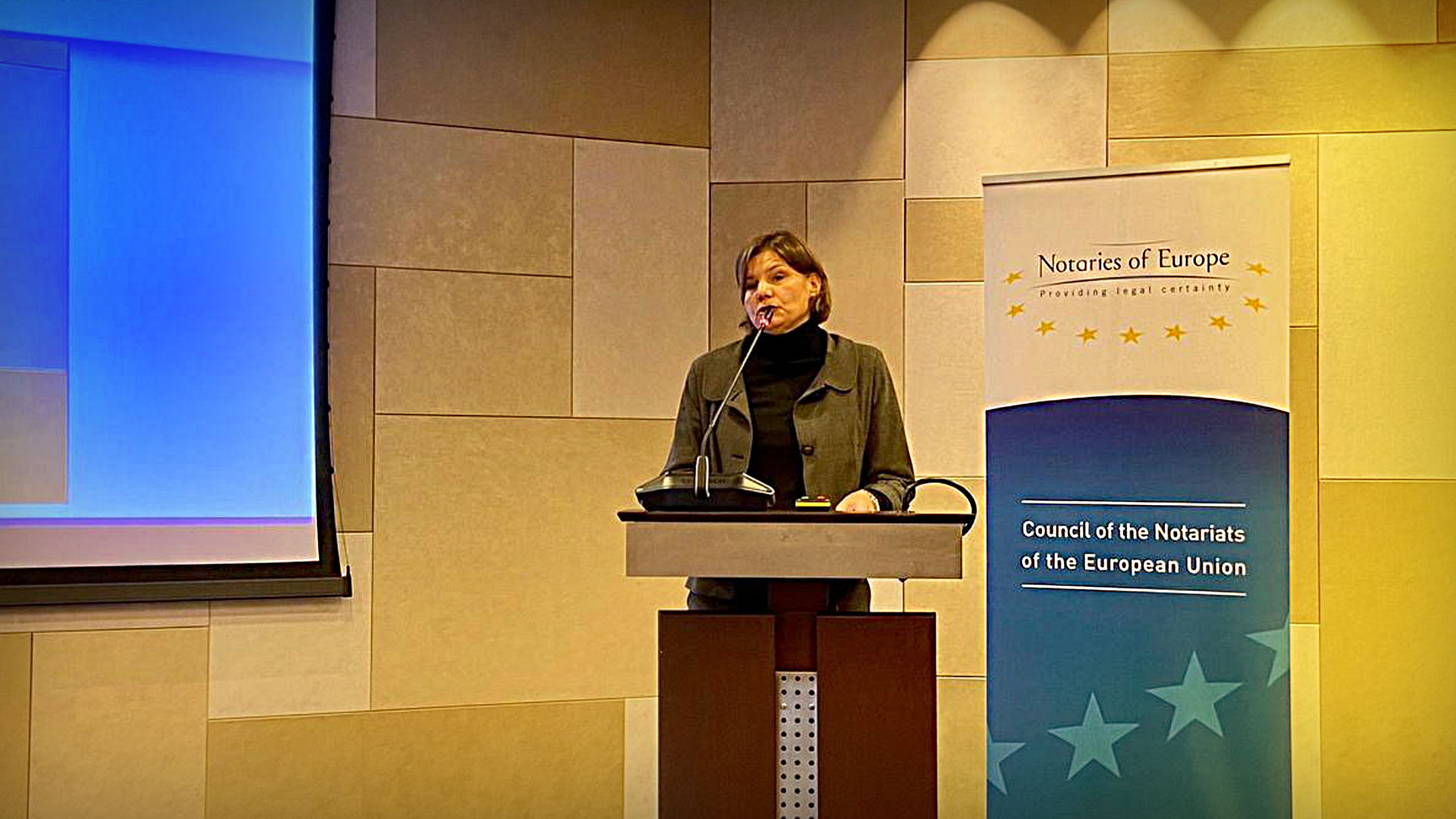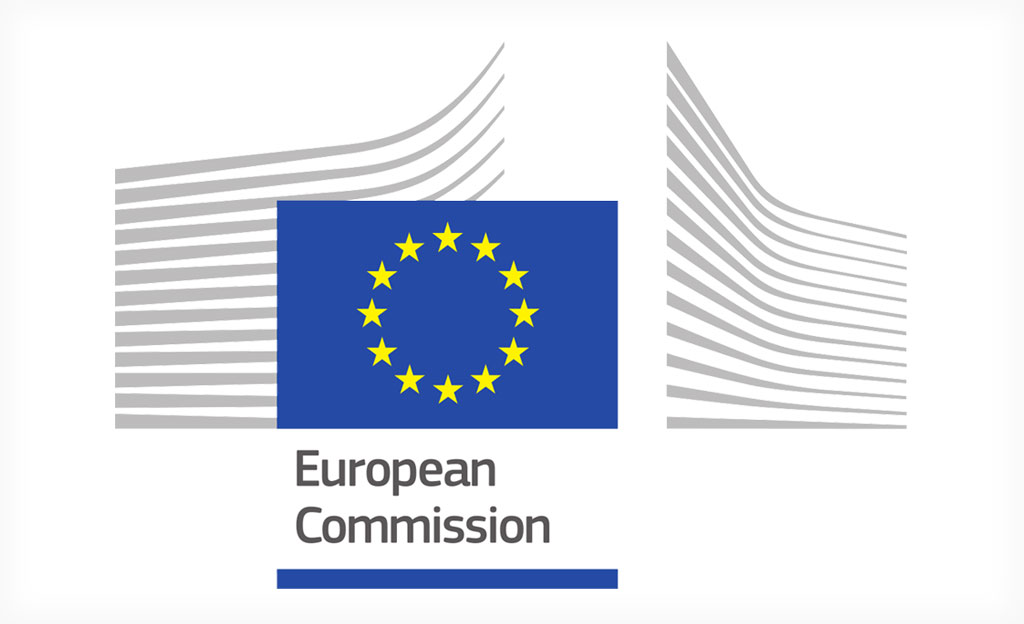News CNUE, 7 December 2020
The digitalisation of justice must be based on the experience of practitioners
–
The European Commission published on 2 December its communication on the digitalisation of justice systems in the European Union. It recalls in its preamble that “efficient judicial systems are essential for the functioning of the internal market and are a precondition for economic growth. Access to justice must be preserved and evolve at the pace of change, including the digital transformation that affects all aspects of our daily lives.
This need for justice actors to deepen the transition to digital was particularly acute during the Covid-19 crisis. During this crisis, Europe’s notaries mobilised to ensure that their activities, recognised as an essential service of general interest by their supervisory authorities, continued throughout the country. New procedures were tried out and proposed. However, they were based on a solid foundation that had been in place for several years: creation and interconnection of registers, dematerialisation of data transfer, online company formation, deployment of e-signature, electronic authentic instruments, videoconferencing and others.
The European Commission’s Communication is part of this development, setting out several objectives. First, to make digital the default option in cross-border judicial cooperation. This is an objective we fully support. In many countries, communications between notaries and judicial authorities are now organised in a dematerialised manner. This is the case, for example, for consultation and registration in public registers held by notaries or by the State. Thanks to the European Network of Registers of Wills Association, the registers of wills kept by the notaries are even interconnected at European level and enable citizens to find out whether last will and testament provisions concerning them are registered in another country. This is also the case for the online creation of companies, as required by a European directive. European notariats are working with their ministries of justice on innovative solutions for an effective transposition of the directive by August 2021.
A second objective of the European Commission is to promote better access to information. Europe’s notaries have been pioneers in this area, often with the financial support of the European Union. We were the first legal profession to offer a European directory of our members (www.annuaire-des-notaires.eu) to enable citizens to find a notary who speaks their language anywhere in Europe. We were also the first to offer multilingual information sites, for example on EU countries’ inheritance law (www.successions-europe.eu) or on family law (www.couples-europe.eu). This content has been added to the European Commission’s e-Justice portal, which must now be further consolidated.
The Commission also underlines the role of e-CODEX as the main tool for secure cooperation in cross-border civil, commercial and criminal proceedings. Notaries have accompanied the implementation of e-CODEX since its creation in 2010 and we will continue to work on its development.
Finally, the European Commission sets ambitious goals in its European strategy for judicial training 2021-2024 and expands the scope of training to new topics, such as digitalisation or artificial intelligence, and to innovative themes and methods. In this area, we will once again be present. Since 2014 and through our training programmes supported by the European Commission, several thousand notaries have been able to follow training courses in European law or the law of another Member State. Moreover, the notariat has committed itself to moving up a gear and within two years will have an integrated European platform for online training in EU law.
On the question of the digitisation of procedures, the stumbling block is not so much the nature of this digitisation, but its control and access. And the European Commission’s communication does not dwell on these aspects. How to ensure the protection of sensitive data? How can we ensure the independence of the judiciary in the use of computer systems? How can we reconcile artificial intelligence and human control? How can we avoid excluding the elderly or people with disabilities from the process and reinforcing the digital divide already at work within our populations?
In Europe, the law is based on the principle of preventive justice and effective regulation of economic operators. And in 22 Member States, the notary has been a guarantor of legality for several centuries and has always been able to adapt to changes in society. The notary’s office is the profession of authenticity, truth, security and data conservation on which the trust of States and our fellow citizens is based. In an age of forgery, false information, falsified data, money laundering and cybercrime, this truth and security are more than ever essential to society.
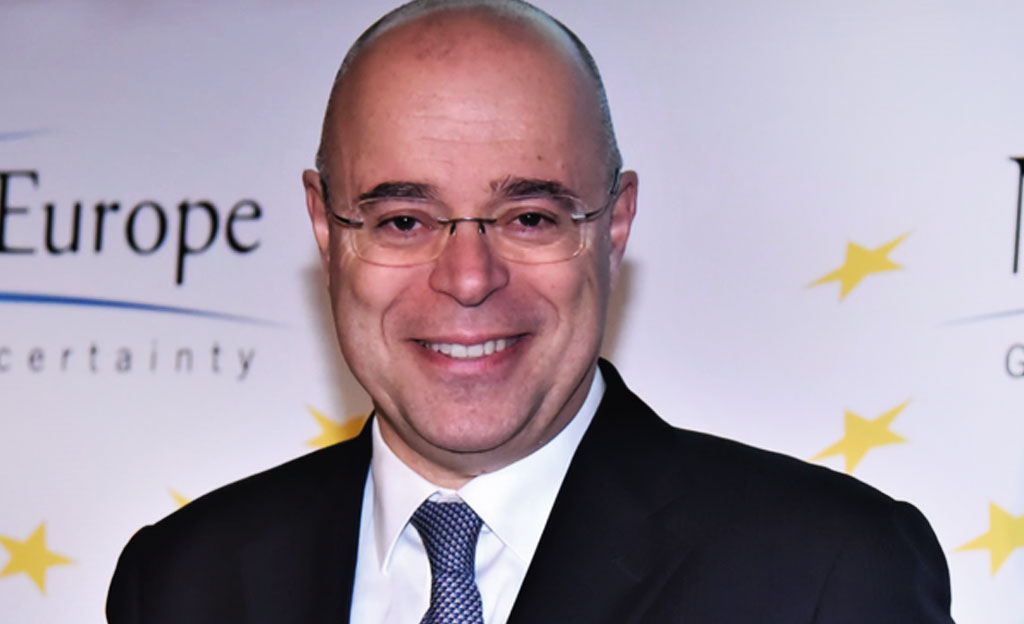
Georgios Rouskas
President of the Council of Notariats of the European Union
National news, 1 December 2020
José Ángel Martínez Sanchiz re-elected President of Spanish Notaries
–
On 28 November, José Ángel Martínez Sanchiz was re-elected President of the General Council of Spanish Notaries, which represents almost 3,000 notaries. Raimundo Fortuñy Marqués (Dean of the Chamber of Notaries of the Balearic Islands) was elected Vice-President.
The President indicated that the new Council will promote support for people with disabilities, in line with the New York Convention and the forthcoming reform of the Civil Code and the Civil Code of Catalonia. The Council also intends to hold a congress this year to address the issue of the elderly.
It also intends to continue with the implementation of the digitisation of the notarial public service. The General Council intends to work on the possibility for public authorities to execute certain notarial acts remotely by videoconference via an online notarial platform, to which the general public will have access. The aim is that certain common notarial acts can be performed without having to visit a notary’s office. He also wants to give citizens the possibility of having an authentic electronic copy of their notarial deed, which they can take with them on their mobile phone if they wish. Another priority objective will be the response and support offered to entrepreneurs and businessmen, both in terms of setting up and managing their businesses and the decisions they will have to make sooner or later with a view to succession or transfer. Finally, it stresses the need to support cooperation, as recognised by the FATF, in the fight against money laundering and terrorist financing.

José Ángel Martínez Sanchiz has been a notary since August 1979 and has practised in Madrid since March 1983. He has held several institutional positions, having been elected for the first time President of the General Council of Notaries in December 2016. He is also an academician member of the Royal Academy of Jurisprudence and Legislation.
Raimundo Fortuñy Marqués has been a notary since 1987 and has been practising in Calviá, Majorca, since August 1997. He has been re-elected Dean of the Chamber of Notaries of the Balearic Islands three times and has been a member of the Permanent Commission of the General Council of Notaries for two years.
News CNUE, 20 November 2020
CNUE Virtual Conference
–
On 10 December 2020, the CNUE is organising a virtual conference which will also be the closing event of the 2018-2020 training programme “Europe for Notaries – Notaries for Europe”, organised with the support of the European Union.
Finally, a second panel will discuss the consequences of the current health crisis, in particular the increasing digitalisation of legal activities, through a dialogue between representatives of European notariats and the European Commission. The latter is due to present a communication on the digitisation of judicial systems and cross-border e-Justice in Europe (e-CODEX) on 2 December. The conference will be the opportunity to come back in details on the content of these announcements.
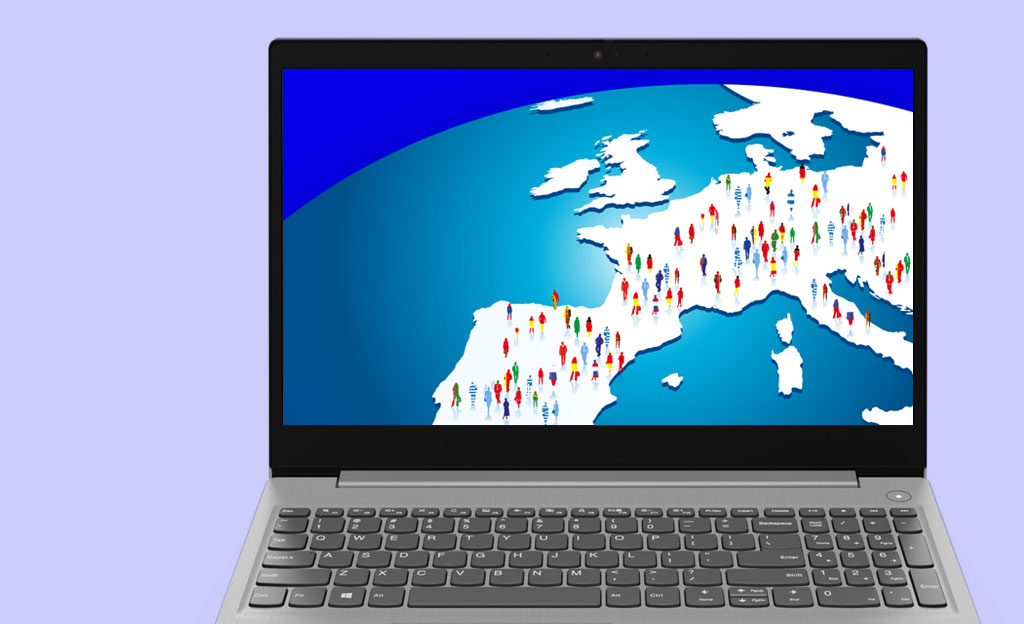
News CNUE, 9 November 2020
Meeting of the European Notarial Network
–
On 3 November, the interlocutors of the European Notarial Network (ENN) held their second annual online meeting. A progress report on the implementation of the annual work programme was made:
– Updating the “Vulnerable persons in Europe” website and its section devoted to adults.
– Drafting of a practical booklet on the circulation of public documents in Europe.
– Design of a communication strategy for the ENN to make it better known among European notaries.
The work programme for 2021 was also reviewed:
– Organisation of cross-border workshops in Portugal and Bulgaria.
– Drafting of a new practical booklet on the execution of authentic instruments.
– Revision and consolidation of the legal information on notarial practice made available in the platform, including on the transposition of the Mediation Directive 2008/52.
– Addition of additional questions relevant for practitioners and their answers on the CNUE website “Couples in Europe”.

News CNUE, 5 November 2020
Conference Ensuring legal certainty in exceptional circumstances
–
On the occasion of the European Day of Justice and within the framework of the European Notarial Network, the Federal Chamber of German Notaries “Bundesnotarkammer” and the CNUE jointly organised a conference in Berlin on 2 November on the theme “Guaranteeing legal security in exceptional circumstances”. At a time of unprecedented health crisis and the digital age, this conference was an opportunity to review the various initiatives taken by European notariats to ensure the continuity of their services, in particular through the development of new digital tools, such as the creation of a blockchain for powers of attorney in Germany or an online company formation system in Italy.
The President of the Bundesnotarkammer, Jens Bormann, recalled that, during these difficult times, it was the duty of notaries, as public officers, to continue their mission towards citizens and companies. In the face of the need for social distancing, the use of videoconferencing and dematerialised access to registers made it possible to ensure the continuity of the notaries’ service. However, Mr Bormann stressed that digitalisation should not be an end in itself: under no circumstances should the changes made undermine quality criteria, such as the guarantee of full legal certainty. In this respect, the German Minister of Justice and Consumer Protection, Christine Lambrecht, congratulated the German notary’s office on the efforts made in recent months, particularly with regard to the implementation of the new online company formation system.
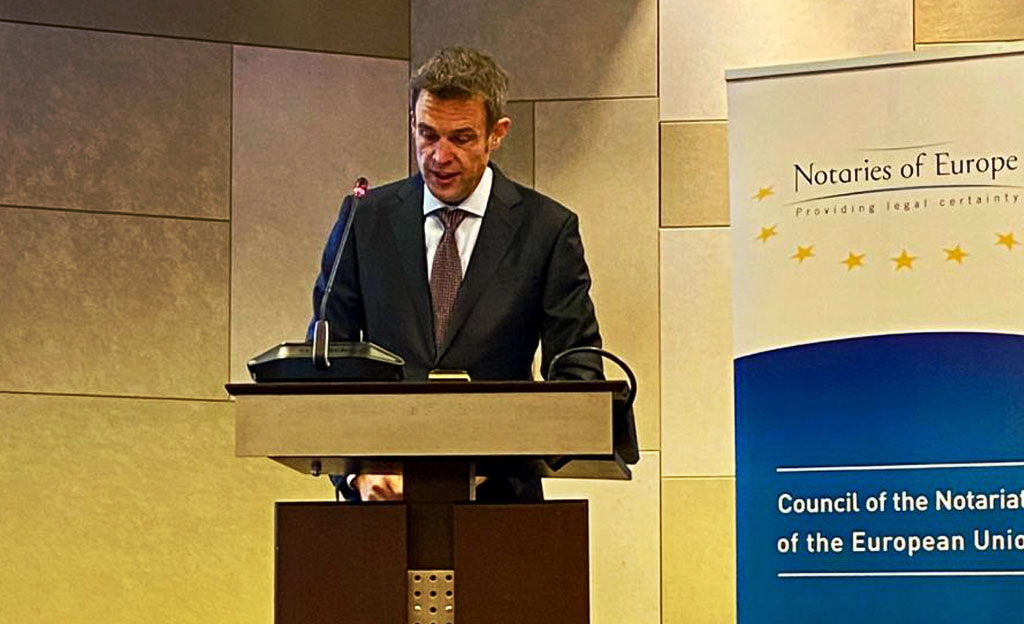
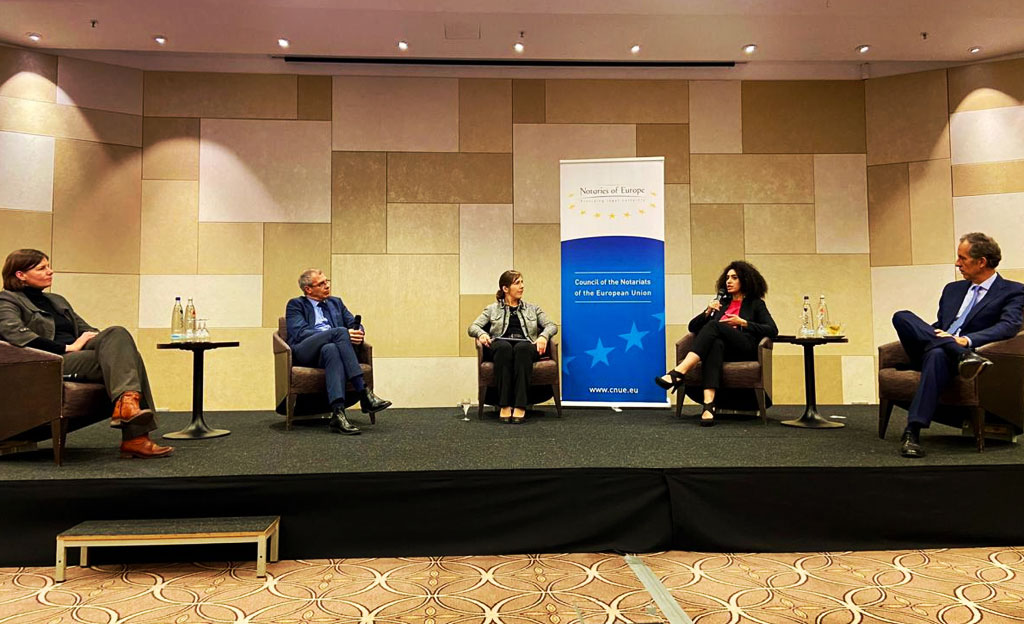
The President of the CNUE, Georgios Rouskas, underlined the willingness of Europe’s notaries to contribute alongside the European institutions to the development of a comprehensive EU strategy on the digitalisation of justice. To this end, he called for the promotion of e-skills in the justice sector, in order to enable notaries, lawyers, judges, prosecutors, court staff and other justice practitioners to use digital tools in an efficient way and with respect to legal certainty. He also insisted that digital tools should not undermine the fundamental principles of legal systems, citing as an example the ongoing work at European level on the use of artificial intelligence, which could also affect the justice sector.
The conference was followed the next day by a meeting of the European Notarial Network, which aims to offer online support to European notaries in handling their cross-border cases.
News CNUE, 4 November 2020
New e-learning tools on the “EMMA” MOOC
–
In the framework of the GoInEUPlus project, supported by the EU Justice Programme 2014-2020, the Fondazione Italiana del Notariato, the University of Florence (coordinator), the University of Valencia, the University of Coimbra, the Eötvös Loránd University of Budapest, the Centre National de la Recherche Scientifique (CNRS), the Associazione Avvocati Matrimonialisti Italiani per la tutela delle persone, dei minorenni e della famiglia (AMI) – Sezione Distrettuale di Firenze and the Fondazione De Gasperi have published online on the MOOC platform “EMMA the following e-learning tools, available free of charge
– an e-learning course on “Family and Succession Law Issues”: 10 video lessons in the languages of the speakers with English dubbing, downloadable slides, relevant legislation, case law, a bibliography and a glossary;
– two sit-coms: interactive scenarios with simulated practical cases.
All e-learning resources deal with cases and issues related to the application of EU Regulations 650/2012, 1103/2016 and 1104/2016. They offer a great opportunity to improve legal knowledge in the field of succession, matrimonial property regimes and the property consequences of registered partnerships.
This was done with the support of experienced providers for the development of the technical part of the e-learning tools and selected experts in the field for the scientific content.
> See instructions for accessing the EMMA platform
For more information on the GoInEUPlus project:
> Visit the website “goineuplus.eu

News CNUE, 30 October 2020
Project – A litigation-free justice for Europe
–
The CNUE is a partner in the EU-supported project “Dispute-free Justice for Europe”, which will start on 1 December 2020.
In Austria, Croatia, the Czech Republic, Hungary and the Slovak Republic, there is a legal peculiarity that notaries exercise jurisdictional functions, particularly in succession proceedings, but also in other areas of civil justice (e.g. family law, payment orders). In Slovenia, the introduction of such jurisdictional functions for notaries in succession cases has been under consideration for some years now. In view of this, the jurisdictional function of notaries in the context of the EU legal framework needs to be examined in more detail.
The project will analyse for Austria, Croatia, the Czech Republic, Hungary and the Slovak Republic the term “court” in the context of the EU Succession Regulation in the context of non-contentious judicial procedures of notaries from the perspective of comparative law, fundamental rights and the rule of law. The project will also include Slovenia, where the reflection of policy makers, academics and the Chamber of Notaries on the transfer of judicial tasks to notaries is progressing.
In this context, the project aims to improve the application of the EU Succession Regulation through a better knowledge and understanding of the jurisdictional functions performed by notaries in the above-mentioned Central European Member States. As the term “court” has been extended by the Succession Regulation and other EU instruments to legal professionals (e.g. notaries) exercising jurisdictional functions, the project aims to identify common minimum procedural standards that allow for the fulfilment of the criteria of the concept of “court” laid down by EU law. The project also analyses fundamental rights aspects and rule of law requirements in the participating Member States. On this basis, recommendations to legislators at European and national level will be presented.
The economic component of the project will carry out an in-depth analysis of the function of civil law notaries as judicial commissioners in order to assess the social and economic benefits resulting from these non-litigious judicial procedures. The study will include a major data collection exercise to identify and quantify the significant economic and legal benefits that can be derived from reducing an economy’s ex-post legal expenditure. The data collected will be used to develop composite indicators to provide a comprehensive mapping of non-litigation judicial services aimed at reducing the burden on the judicial system. For this purpose, the respective legal acts and litigation prevention judicial services will be compared in substance and scope in order to better reflect non-contentious judicial procedures in the European Justice Scoreboard or in the work of the CEPEJ of the Council of Europe. On this basis, new indicators will be developed to better reflect non-contentious judicial proceedings in these instruments. Recommendations and conclusions addressed to policy makers will be presented.
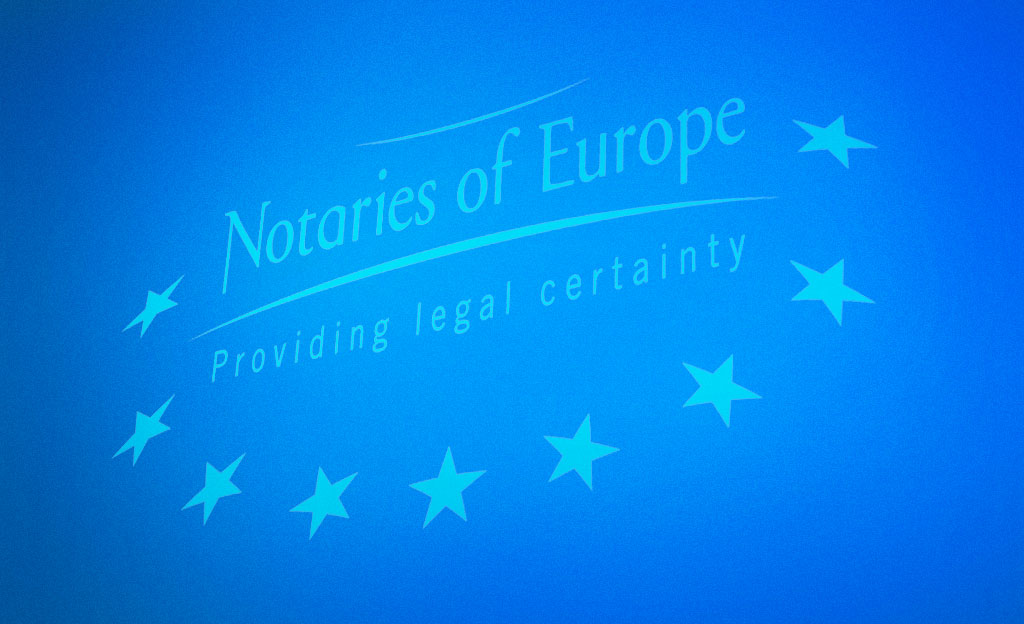
News CNUE, 23 October 2020
Slovenia – European Day of Justice
–
Every year, on the occasion of the European Day of Justice, which is celebrated in the EU Member States, Slovenian notaries open the doors of their offices and are available to give advice to visitors in the field of civil law. Due to the outbreak of COVID-19, the open day will be organised in a virtual format on 23 October 2020, between 9 am and 12 pm. Slovenian notaries will make citizens aware of their rights, with a special focus on wills, their drafting and conservation.
As part of the European Day of Justice, a virtual ceremony will be held during which a short documentary film on the history of the notary’s office in Slovenia, made on the occasion of its 25th anniversary, will be presented.
The premiere of the film, with English subtitles, will take place on Friday 23 October 2020 at 12 noon.
The film can be viewed on the Facebook profile of the Slovenian Chamber of Notaries.
News CNUE, 22 October 2020
European Justice Day – 25 october 2020
–
On 25 October, we will celebrate the European Day of Justice. Organised by the European Commission and the Council of Europe, this symbolic day aims to bring justice closer to the citizens and to inform them about their rights.
Every year, the CNUE joins in these celebrations and its members organise information sessions, educational conferences and free consultations in which several thousand people, whether they are ordinary citizens, students, pensioners or entrepreneurs, take part. They can get information, ask questions about their family and property situation or learn more about the role of the notary and the European and national institutions.
This year, the European notariat is organising events in the following countries
– Germany
The Bundesnotarkammer and the CNUE are jointly organising a conference online and in Berlin on 2 November on the subject of “Ensuring legal security in exceptional circumstances”. On this occasion, the German Minister of Justice and Consumer Protection, Christine Lambrecht, has confirmed her participation in the opening ceremony. Registration is open until 28 October
> Register now
– Belgium
The Belgian notariat is organising Facebook Lives on “How to prepare my succession”.
On 26 October at 12.30 pm for French speakers.
> Registration for French speakers
October 28 at 12:00 for Dutch speakers.
> Dutch-speaking registration
– Spain
A major information campaign in the press and social networks will be organised by the Spanish notariat for the young public.
– Italy
On 25 October, a digital version of the play “This Constitution is a show” will be broadcast simultaneously in six prisons. This play has already been performed in schools and theatres. During the performance, notaries will describe the Constitution to the prisoners as if it were a novel, focusing on the articles related to detention and prisoners’ rights (inviolable rights, principle of equality, right to defence, fair trial, etc.) using both texts and commentaries of the Constitution with a soundtrack designed for the event, video clips, references to the press, television and journalists.
– Lithuania
On 26 October, all Lithuanian notary offices will be open to the general public for free legal consultations.
– Malta
On 29 and 30 October, the Maltese Notariat is organising a conference on the practical aspects of matrimonial property regimes and registered partnerships in the context of the European Regulations 2016/1103 and 2016/1104.
> More information: info@notariesofmalta.org
– The Netherlands
The Dutch notariat is organising a webinar on 23 October on “European couples”. This webinar will deal with marriage contracts, registered partnerships and the purchase of a house for international couples.
> Contact Marie-Louise de Vos: m.devos@knb.nl
> Contact Lineke Minkjan: l.minkjan@knb.nl
From 25 to 31 October, the notarial records of the Amsterdam city archives will be on display
> Contact Ellen Fleurbaaij: e.Fleurbaay@amsterdam.nl
> Visit the website
– Poland
The Polish notary’s office is organising “The Open Day of the Notary’s Office – Watch your business. Protect your assets. Talk to the notary” on 28 November. The regional chambers of notaries will answer questions from the general public by telephone and internet.
– Romania
On 25 October, between 9am and 1pm, the Romanian notariat is organising online or telephone legal consultations for the general public.
– Slovenia
On 23 October, Slovenian notaries will inform and educate citizens online about their rights in the field of civil law. Special attention will be paid to wills, their drafting and filing. On the same day, a solemn event will be organised during which a film will be previewed on the history of the notary’s office in Slovenia, shot on the occasion of the 25th anniversary of the notary’s office in independent Slovenia. Finally, a new edition of the magazine “Notarski vestnik” will be published, and notaries will appear in the media and on TV phone-in shows where they will answer viewers’ questions in the field of civil law.
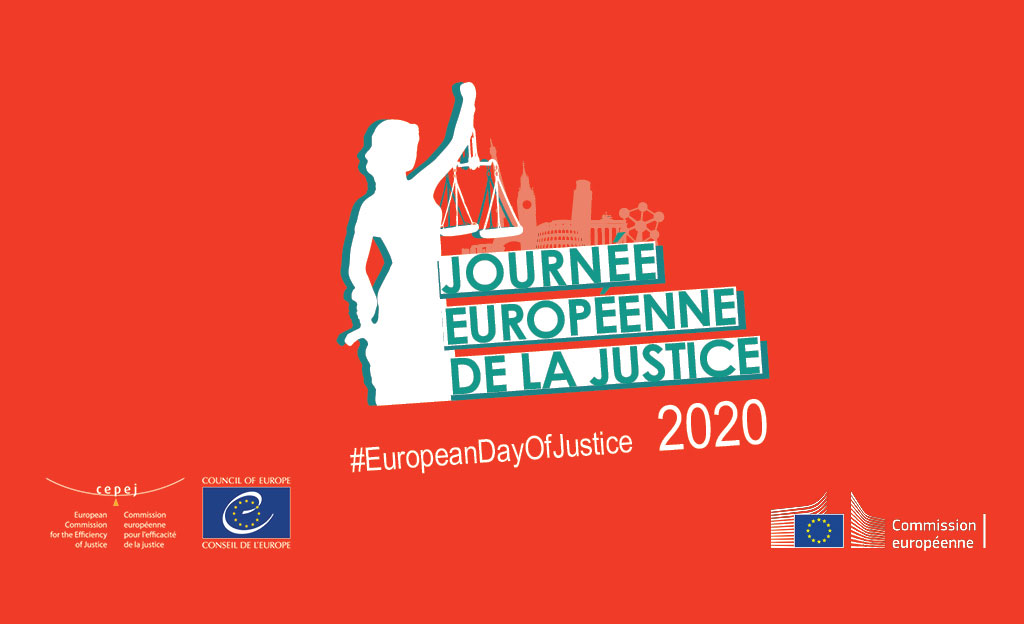
News CNUE, 19 October 2020
Conference – Ensuring legal certainty in exceptional circumstances – 2 november 2020
–
On the occasion of the European Day of Justice and in the framework of the European Notarial Network, the Bundesnotarkammer and the CNUE are jointly organising a conference online and in Berlin on 2 November on the topic of “Ensuring legal certainty in exceptional circumstances”. On this occasion, the German Minister of Justice and Consumer Protection, Christine Lambrecht, has confirmed her participation in the opening ceremony.
The central question of the conference will be how to ensure legal certainty and provide efficient access to non-tariff services in the digital age. Notaries will have to innovate and digitise their procedures and ensure that Member States create modern and fast procedures for the preventive administration of justice, especially with regard to public registers. But beyond that, it will be shown that notaries play a key role in protecting privacy and keeping basic information on key economic rights (such as ownership of real estate or ownership and management of companies) under reliable, impartial and demonstrably secure public control.
The first part of the conference will present the experiences of notaries during the pandemic in different circumstances in the different Member States and will explore new digital tools such as video conferencing, electronic identity card access and management and highly secure digital storage systems. This part will end with the presentation of a prototype developed by the Bundesnotarkammer for the use of blockchain technology in the notaries’ working environment.
The second part of the conference will give representatives of European notariats the opportunity to present their national digitisation projects, thus encouraging participants from other Member States to attend.
The closing panel of the conference will bring together representatives from the political, legal-technical and notarial worlds.
The registration form is open until 28 October.
> Register online
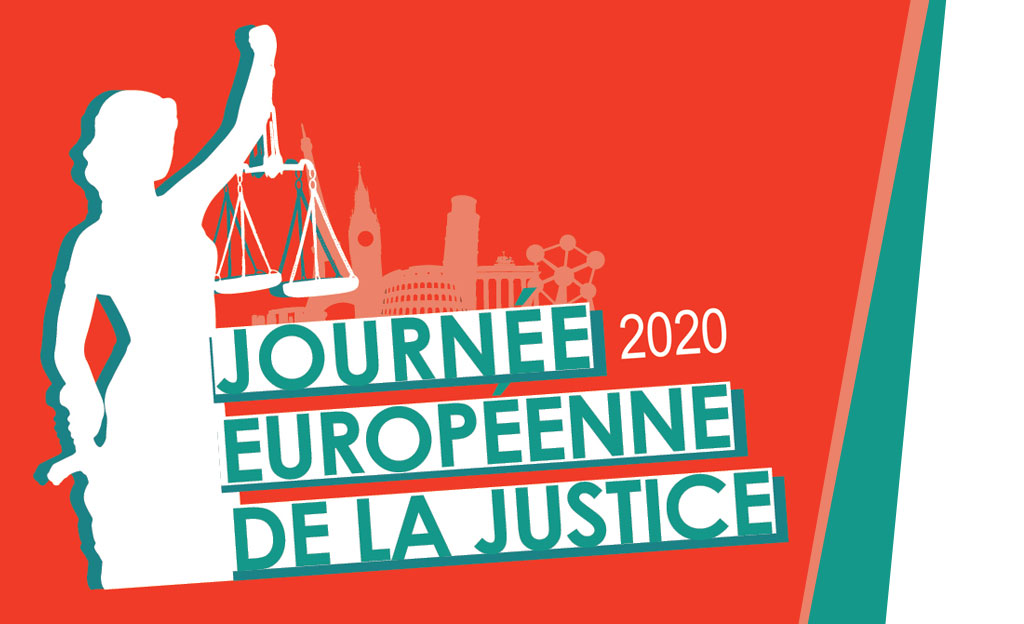
News CNUE, 13 October 2020
Cross-industry anti-money laundering webinar, 6 October 2020
–
The CNUE organised a cross-industry webinar on anti-money laundering on 6 October 2020. This workshop was held in the framework of the 2018-2020 training programme “Europe for Notaries – Notaries for Europe” supported by the European Union.
Around 120 participants took part in the discussions, which were structured around two panels:
– One on “The identification of the beneficial owner in legal persons – challenges and perspectives”.
– The other entitled “What do competent authorities expect from obligated entities? Gaps and ways to improve collaboration”.
Participants included notaries from all over Europe, but also representatives of other professions – accountants, lawyers, judges – , the banking sector, supervisory authorities, Interpol and even the European Commission, in the person of Ms Raluca Prună, Head of the Financial Crime Unit at DG FISMA.
Ms Prună returned to the Action Plan published on 7 May 2020 and the various initiatives that will be undertaken to strengthen the European anti-money laundering framework. In the context of the public consultation organised by the European Commission, Mr Georgios Rouskas, CNUE President, presented in detail the CNUE proposals which can be summarised as follows:
– A future European regulation should take into account the following elements in order to remedy the lack of consistency caused by the divergent transposition of the directives in the Member States:
• the list of covered entities
• the tasks of financial intelligence units
• reporting obligations;
• registers of central bank accounts;
• the ceiling for large cash payments.
– Given the differences between Member States regarding money laundering risks, some elements should be regulated by national law. This would allow Member States to tailor solutions through a risk-based approach adapted to their respective national jurisdictions.
– As notaries are already subject to very strict supervision at national level – usually exercised by judicial authorities – CNUE suggests that this should not be altered by an additional European supervisory authority. A central EU supervisory authority should have direct powers over the financial sector and support Member States by sharing knowledge and experience to improve supervision by national authorities.
The videos of the webinar are available at the following links:

News CNUE, 7 October 2020
A new anti-money laundering training tool made available by the Spanish Notariat
–
Practitioners can now find, in free access, on the ENN platform, the “Training and awareness course on the prevention of money laundering” developed by the General Council of Spanish Notaries:
Used as a state-of-the-art training tool in the prevention and fight against money laundering and terrorist financing, it contains a series of training videos that allow notaries to deal with specific situations and cases that they may encounter in the day-to-day professional life of their offices.
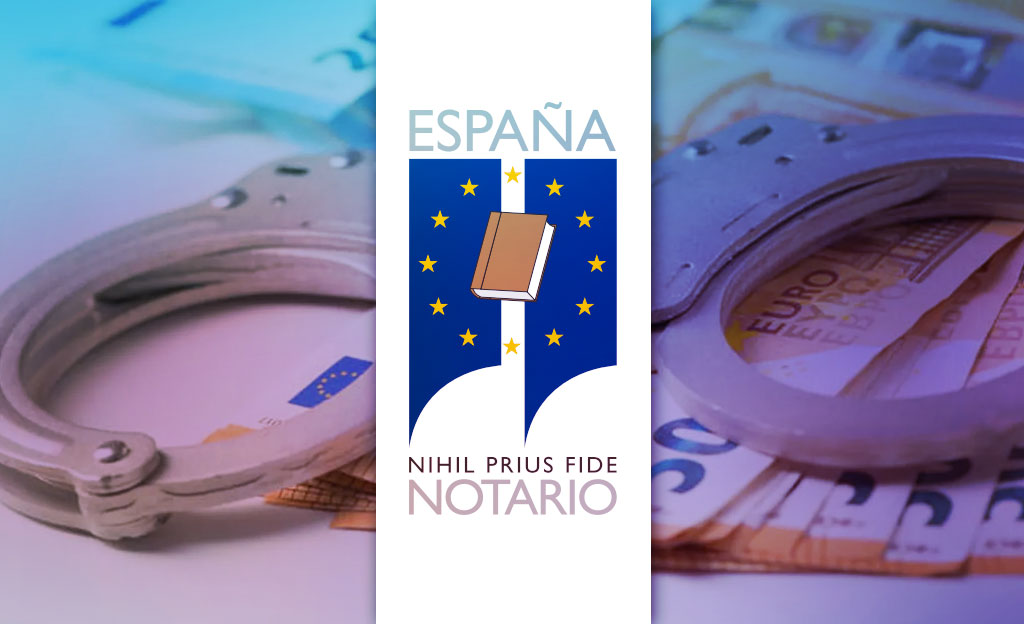
National news, 17 July 2020
CISUR Project – Recommendations on the application of the EU Succession Regulation
–
> The contents of this publication represent the views of the authors and not of CNUE.
The implementation of Regulation (EU) No 650/2012 of the European Parliament and of the Council of 4 July 2012 on jurisdiction, applicable law, recognition and enforcement of decisions and acceptance and enforcement of authentic instruments in matters of succession and the creation of a European Certificate of Succession (hereinafter: the Regulation) has been the subject of research, discussion and training among legal professionals (notaries, judges, lawyers), judicial institutions, chambers of notaries, bar associations and academic communities in both countries) applying the Regulation in Croatia and Slovenia over the past 20 months.
In the framework of the project “Strengthening Judicial Cooperation on the Implementation of the Succession Regulation in Croatia and Slovenia (CISUR)” (hereinafter: the project), “Recommendations on the Implementation of the Succession Regulation” (hereinafter: the recommendations) and “A Guide for the Implementation of the Succession Regulation (EU) No 650/2012” (hereinafter: the guide : Guide) were developed to contribute to a better understanding of the main challenges and problems encountered in practice when applying the Regulation, but also to propose a response to the recognised challenges, and to raise awareness of the need to continue to educate legal practitioners and inform EU citizens; leading to the application of the Regulation in line with its main objective – to facilitate the exercise of EU citizens’ rights in cases of cross-border succession.
The project was carried out by the Croatian Legal Centre (a civil society organisation from Croatia), in partnership with the Ministry of Justice of the Republic of Croatia, the Chamber of Croatian Notaries, the Peace Institute (a civil society organisation from Slovenia) and the Chamber of Notaries of Slovenia, and in association with the Supreme Court of the Republic of Croatia. The project is co-financed by the European Union’s Justice Programme (2014-2020). A special role in the project, consisting of monitoring and evaluating the implementation of the project, has been assigned to the Project Board, consisting of representatives of the project partners and associated institutions: CLC (Vesna Grubić, Director), Ministry of Justice of the Republic of Croatia (Ivan Crnčec, Deputy Minister for the European Union and International Cooperation, Directorate for the European Union and International Cooperation), Croatian Chamber of Notaries (Ljiljana Vodopija Čengić, Notary), Peace Institute (Katarina Vučko, a legal expert), the Chamber of Notaries of Slovenia (Sonja Kralj, President of the Chamber of Notaries of Slovenia), the Supreme Court of the RoC (Damir Kontrec, Judge and President of the Civil Department of the Supreme Court) and the key expert of the project, Professor Emeritus of Law Mihajlo Dika.
The recommendations were based on research on the regulatory and institutional framework for the implementation of the Regulation, and on the current state of play in Croatia and Slovenia, conducted in the first phase of the project. The research included the drafting of a “Desk Research Report on the Regulatory and Institutional Framework for the Implementation of the Regulation in Croatia and Slovenia” and empirical field research developed through semi-structured interviews and focus groups with notaries, judges and lawyers. The research was completed by the elaboration of the “Final report on the research conducted on the implementation of the Succession Regulation in Croatia and Slovenia”.
The main challenges in practice when applying the Regulation, recognised in the recommendations, were related to the following aspects
– the assessment of the “cross-border element” in succession matters ;
– the determination of the habitual residence of the deceased at the time of death as a connecting factor for the determination of the general jurisdiction and the law applicable to the succession as a whole
– the need to make EU citizens aware of the existence of the possibility to settle succession issues in advance, by choosing the applicable law and concluding a choice of court agreement;
– the need to take into account the nature and scope of an authentic instrument in the Member State of origin when establishing its evidential effects in another Member State (and a further reference to “the most comparable effect”);
– the European Certificate of Succession: how to proceed in cases where the content of a decision on succession and that of a certificate are contradictory; the persons authorised to request its issue; the complexity of the form for issuing the certificate; the costs of translating the certificate; the situations of so-called defective certificates (cases where the
Some of the recommendations include
– to consider simplifying the form for issuing the European Certificate of Succession;
– to establish a special register at EU level, as well as national registers, where the time of the introduction of the succession procedure, as well as the course of the procedure, the application, the issue of a European Certificate of Succession and all other circumstances related to a certificate (its rectification, modification, withdrawal and temporary suspension of its effects) would be recorded;
– organise educational activities and training programmes not only for practising notaries, judges and lawyers, but also for other interested parties (lawyers working in banks, pension insurance institutions, etc.).
The research results and recommendations were presented and discussed at the expert meeting held in Ljubljana on 3 December 2019, organised for stakeholders applying the Regulation in Croatia and Slovenia. The meeting was an opportunity for representatives of the judiciary, notaries, lawyers, the Ministry of Justice and academic communities from both countries to exchange their knowledge and experience, and to draw some conclusions mainly corresponding to the recommendations, with a particular focus on the following topics: cross-border succession cases and determination of habitual residence, choice of law, the idea of establishing a special European register of succession procedures and European certificates of succession.
In the second phase of the project, a special guide was developed to facilitate the overall implementation of the Regulation and to integrate the results of the project into professional practice and understanding of the Regulation among members of the relevant professional groups (judges, notaries and lawyers). The guide and teaching materials, including lectures and case studies on the practical application of the Regulation, prepared by the team of education experts in each state, served as the basis for the subsequent training. The pilot training took place on 15-16 May 2020 in Croatia, and on 11-12 June 2020 in Slovenia. After the pilot training, online training courses were scheduled and delivered in each state using the same teaching materials, which remain available to judges, notaries and lawyers in the respective states.
In addition, the document “Information for citizens of EU Member States in case of cross-border succession” was drafted, providing information and instructions to EU citizens, potential heirs in cases of cross-border succession.
The final event of the project – an international colloquium – held online on 3 July 2020, provided an opportunity for the main stakeholders applying the Regulation to discuss the most important recommendations and present their views on future policy actions, in two round tables: I. The creation of a special register at EU level and the Succession Regulation (EU) No 650/2012 and II. Amendments to national implementing legislation and uniform application of the Succession Regulation (EU) No 650/2012 – Croatian and Slovenian perspectives. At the same time, this event provided a link for further cooperation between legal experts and public authorities in the field of implementation of the Regulation, both in Croatia and Slovenia. The international colloquium ended with the adoption of conclusions concerning possible legislative amendments and uniform application of the Regulation on succession. Representatives of the CNUE and the EJN also participated in the colloquium and contributed significantly to its success.
> Download the pdf of information on the project

News CNUE, 15 July 2020
Couples in Europe – Matrimonial property regimes and registered partnerships in 33 European countries
–
Knowledge of foreign law on property relations between spouses and registered partners, especially after the adoption of the two EU Regulations (2016/1103 and 2016/1104), remains of particular interest to legal practitioners (whether judges, notaries or lawyers), as they may often be called upon to deal with property matters of spouses and partners that have cross-border effects.
However, with so many international couples moving and operating in more than one country, even citizens may well be interested in the laws of other countries, in order to be informed and to be able to better organise the legal status of their property relationship with their spouse or partner, as well as succession issues.
“Couples in Europe“ is a practical guide to the laws currently applicable in thirty-three European countries on issues relating to the property rights of spouses and partners, such as the conditions for the validity of marriage and registered partnership, the basic matrimonial and partnership regimes established by law in each country, and the possibilities that each national legislator has conferred with regard to the choice of a property regime different from the one in force.
This collection of reports also covers the assets that constitute the joint or personal property of a couple, as well as joint and personal debts. It discusses the property effects of the default legal matrimonial regime and those of matrimonial agreements between spouses and partnership contracts between partners, as well as between the couple and third parties. It also contains information on the conditions for transferring property (especially real estate) belonging to one or both partners or spouses.
Finally, the book explores the powers of each spouse or partner in property matters, the conditions for the validity of matrimonial and partnership contracts, the publicity of the chosen regime, the existence or absence of an inventory of property, the rules of private international law governing property relations, including the law of professio juris, and other issues.
The thirty-three countries participating in this publication are Austria, Belarus, Belgium, Bosnia and Herzegovina, Bulgaria, Croatia, Cyprus, Czech Republic, Estonia, France, Georgia, Germany, Greece, Hungary, Italy, Kosovo, Latvia, Lithuania, Luxembourg, Montenegro, Northern Macedonia, Poland, Principality of Andorra, Romania, Russia, Serbia, Slovakia, Slovenia, Spain, Switzerland, Turkey, Ukraine, United Kingdom.
This edition includes the reports in English or French, depending on the language choice made by the rapporteur for each country. Thus, twenty-seven countries present their legislation in English, while six do so in French. The reports in French are accompanied by summaries in English.
This edition is the result of the collaboration of three European notarial institutions: CAE – IRENE – CNUE.
The coordinator of the project is Marianna Papakyriakou, a notary in Greece and Vice-President of the EAC.
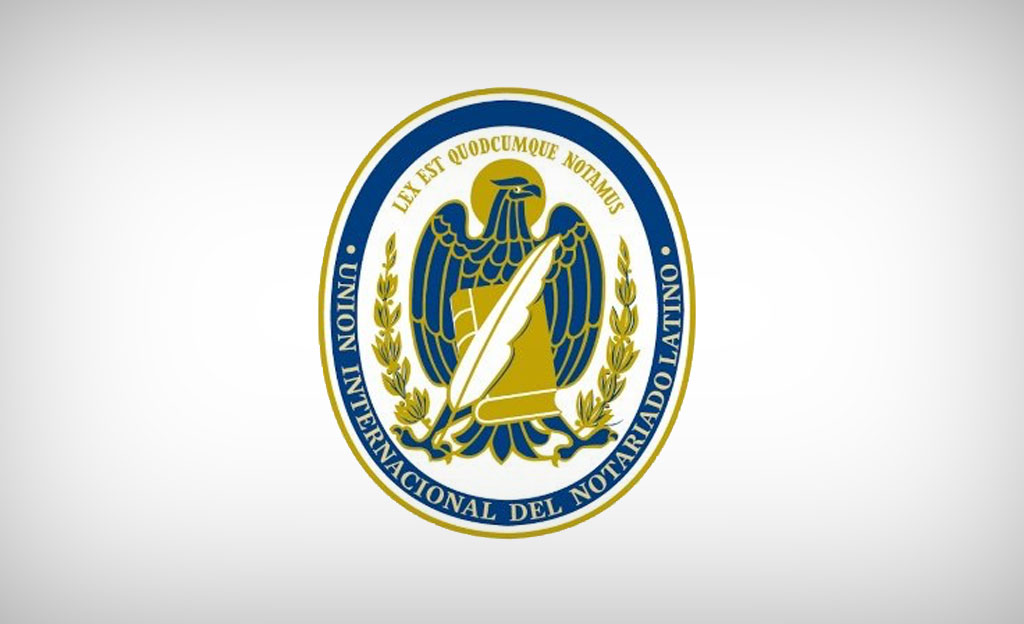
News EU, 13 July 2020
EU Justice Scoreboard 2020
–
On Friday 10 July, the European Commission presented the results of its Justice Scoreboard 2020, which provides a comparative overview of the independence, quality and efficiency of the judicial systems of the EU Member States. This 8th edition covers the years 2012 to 2019, but not 2020, and therefore does not reflect the consequences of the Covid-19 pandemic.
According to the results of two Eurobarometer surveys commissioned by the Commission, public perception of independence has decreased in about two-fifths of all Member States compared to last year. Interference or pressure from government and politicians is the most common reason given for the perceived lack of independence of courts and judges, followed by pressure from economic or other interests. The data will be used to feed into the first annual rule of law report to be adopted by the Commission in September.
Otherwise, the 2020 edition shows that the efficiency and quality of judicial systems in most Member States have continued to improve or have remained stable. Countries such as Portugal, Italy, Croatia and Slovenia have continued to reduce delays in civil and commercial cases.
Another novelty is that the 2020 edition of the Scoreboard includes new indicators on the digitalisation of judicial systems. The report also shows that all Member States are starting to put in place provisions to ensure that judgments are machine readable, although the degree of progress differs. Furthermore, electronic means during court proceedings are only partially available. In more than half of the Member States, electronic filing of applications and transmission of summonses are still not in place or are only possible to a limited extent. The Commission also notes significant gaps in the possibility to follow court proceedings online, with no Member State having achieved full deployment in all jurisdictions and areas of law.
News EU, 10 July 2020
EU citizenship and democracy
–
On 9 July, the European Commission published a new Eurobarometer survey on citizenship and democracy in the EU:
> Read the survey
It shows that a large majority of Europeans (91%) are aware of the term ‘citizen of the European Union’. This is the highest level of awareness since 2007 and a steady increase from 87% in 2015. Most Europeans are well informed about their electoral rights, both at national and European level.
The European Commission has also launched a public consultation on EU citizens’ rights:
> Discover the public consultation
This consultation aims to gather information, experiences and opinions on EU citizenship rights, which will be included in the next report on EU citizenship. In view of the COVID-19 pandemic, this consultation also includes questions on the impact of emergency measures on EU citizenship rights. All citizens and organisations are invited to contribute to this consultation until 1 October 2020.
The results of the Eurobarometer on EU Citizenship and Democracy, the public consultation and a wider stakeholder consultation (to be launched in the second half of 2020), will be incorporated into the next Report on EU Citizenship. This Report will present concrete actions to advance EU citizenship rights. It will complement the Action Plan for European Democracy, both of which are to be adopted by the end of 2020.
Nationals of EU Member States are automatically EU citizens, and EU citizenship confers important rights. These include
– non-discrimination on the basis of nationality,
– the right to live and move within the EU,
– participation in the political life of the EU,
– consular protection, if needed abroad, from the embassy or consulate of any other EU country, if one’s own country is not represented,
– the right to petition the European Parliament and to complain to the European Ombudsman, etc.
These rights are set out in the Treaty on the Functioning of the European Union and included in the Charter of Fundamental Rights. In this context, the CNUE fully supports all measures taken to ensure that EU citizenship rights benefit citizens, to involve citizens more in the democratic life of the Union, to promote the common values of the EU and to strengthen the protection of all European citizens.
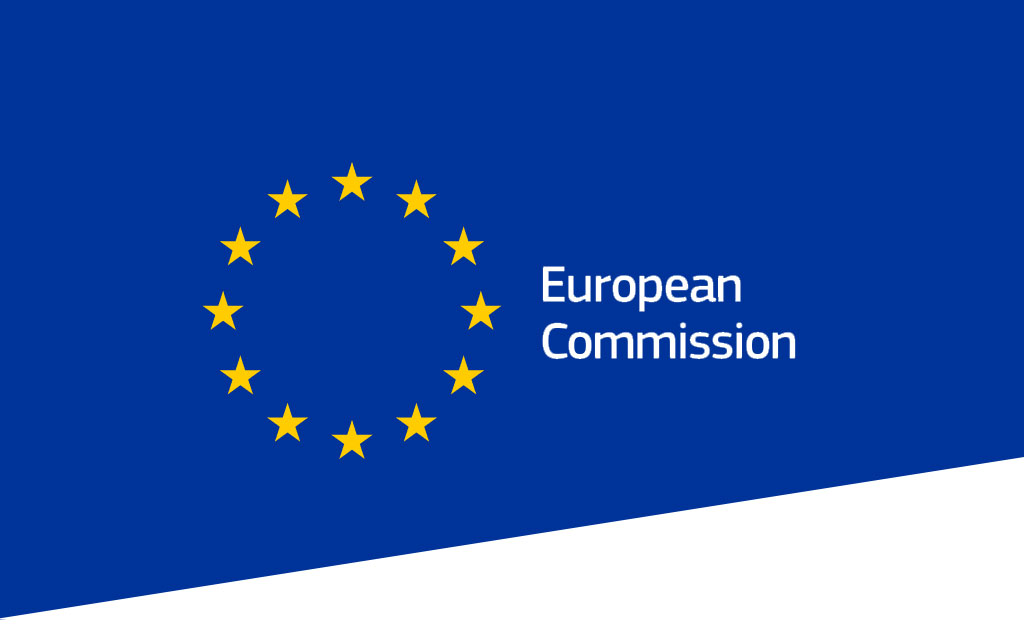
News CNUE, 16 June 2020
CNUE publishes the second issue of its mook on the fight against money laundering
–
Within the framework of the training programme III “Europe for Notaries – Notaries for Europe”, the CNUE publishes the second issue of its “mook”, this time dedicated to the fight against money laundering.
The publication can be consulted at the following links:
> Read the publication in French
> Read the publication in English
The aim of this publication is to provide European notaries, and more broadly practitioners, with an overview of the work of international bodies and the legislation in force in the field of anti-money laundering. It will be a useful source of information for the professional who, in his daily practice, must be able to serve the best interests of his clients, the State and society in general.

National news, 28 May 2020
The EMMA MOOC platform: training tools on European law for notaries
–
In the framework of the EuLawInEN project supported by the EU Justice Programme 2014-2020, the Fondazione Italiana del Notariato, the Cassa Nazionale del Notariato, the Bulgarian and Hungarian Chambers of Notaries and the International Association of Judges have published online on the “EMMA” MOOC platform the following e-learning tools, available free of charge:
– an e-learning course entitled “e-REGULATIONS IN PRACTICE”: 18 video lessons of 20 hours in total with downloadable slides, a final test and a bibliography, including a glossary of English legal terminology;
– three sit-coms: providing interactive scenarios with simulated practical cases dealing with the most common real-life situations for the topics considered and requiring player interaction in order to solve the cases in the best possible way through the application of EU law;
– a serious game: comprising different stages aimed at testing, in an interactive and fun way, the knowledge of EU law acquired after participating in the training seminars and watching the video lessons of the e-learning course.
All e-learning resources are in English and adopt the C.L.I.L. (Content and Language Integrated Learning) methodology. They deal with cases and issues related to the application of EU Regulations 650/2012, 1103/2016 and 1104/2016. Access to these materials offers a great opportunity to improve knowledge of the law of succession, matrimonial property regimes and the property consequences of registered partnerships as well as the English language.
This has been done with the support of experienced practitioners dedicated to the development of the technical part of the e-learning tools and selected experts in the field for the scientific content.
> See the instructions for accessing the EMMA platform
> For more information on the EULawInEN project

News EU, 13 May 2020
New set of proposals in the fight against money laundering
–
On 7 May 2020, the European Commission published a package of initiatives in the field of anti-money laundering and combating terrorist financing. This package mainly consists of the following instruments:
1> An Action Plan for a comprehensive EU policy on the prevention of money laundering and terrorist financing from the Commission in which it unveils the initiatives it wishes to undertake in this area in the next 12 months. The Commission intends to work on the following 6 axes
o Ensuring the effective implementation of the existing European framework, in particular by continuing to monitor the transposition of the directives in force by the Member States and by evaluating the application and capacities of the Member States in the area of money laundering prevention in the context of the European Semester. The adoption of country-specific AML recommendations is scheduled for the second quarter of 2020.
o Present in the first quarter of 2021 a draft regulation for a more uniform application of the EU framework in this area. This regulation should at least include provisions establishing the list of obliged entities, customer due diligence requirements, internal controls, reporting requirements, as well as provisions on beneficial ownership registers and central bank account mechanisms. A more harmonised approach to the identification of politically exposed persons should also be considered. Other measures could include facilitating the use of remote digital identification of customers.
o Establish a European supervisory authority to integrate, complement and enhance coordination of national systems. National supervisors will continue to be an essential part of this system and will remain responsible for most day-to-day supervision. The establishment of the European core system is a priority, and its functions, competences and interaction with national supervisors should be clearly defined in a legislative proposal, announced for the first quarter of 2021. The task of ensuring EU-level supervision could be entrusted either to an existing European agency, namely the European Banking Authority, or to a new specialised body.
o Establish a support and cooperation mechanism for Financial Intelligence Units. To this end, the Commission will present proposals to establish an EU coordination and support mechanism for FIUs in the first quarter of 2021, after assessing options for its role and structure.
o Strengthen criminal law provisions at EU level and information exchange, while ensuring respect for data protection and confidentiality. The role of public-private partnerships should be encouraged wherever possible between law enforcement agencies, FIUs and the private sector. This can range from the exchange of information on typologies and trends to the exchange of operational information on suspects by law enforcement agencies with obligated entities, in order to monitor the transactions of these suspects. Any sharing of information including personal data will have to be fully compliant with data protection legislation and respect the mandates of the authorities concerned. The Commission will issue guidance on PPPs by the first quarter of 2021.
o Strengthen the international dimension of the EU anti-money laundering and counter terrorist financing framework. A new methodology on the assessment of high-risk third countries is published together with this Action Plan. The Commission will continue to work with Member States and will strengthen its participation in the FATF so that the EU can play a more prominent role at global level.
2> A public consultation on the different options mentioned in the above Action Plan has been launched at the same time as the Action Plan in order to allow all interested parties to react to each of the measures proposed by the Commission and to give their views on how best to achieve the desired results in each case. The deadline for input is 29 July.
3> A new methodology for identifying third countries with strategic AML/CFT vulnerabilities that replaces the methodology for identifying high-risk third countries published in June 2018.
4> An updated list of third countries considered to be high risk for money laundering and terrorist financing, established in accordance with the former methodology. This new list is now more consistent with the lists published by the FATF. The countries on the list are the Bahamas, Barbados, Botswana, Cambodia, Ghana, Jamaica, Mauritius, Mongolia, Myanmar, Nicaragua, Panama and Zimbabwe. Countries that have been removed from the list are Bosnia and Herzegovina, Ethiopia, Guyana, Lao People’s Democratic Republic, Sri Lanka and Tunisia. The Commission has amended this list by means of a delegated regulation. This will now be submitted to the European Parliament and the Council for approval within one month (with a possible extension of one month).
All documents and more detailed information are available online:
> Consult

_Publications
Notaries of Europe Alongside Citizens and Businesses
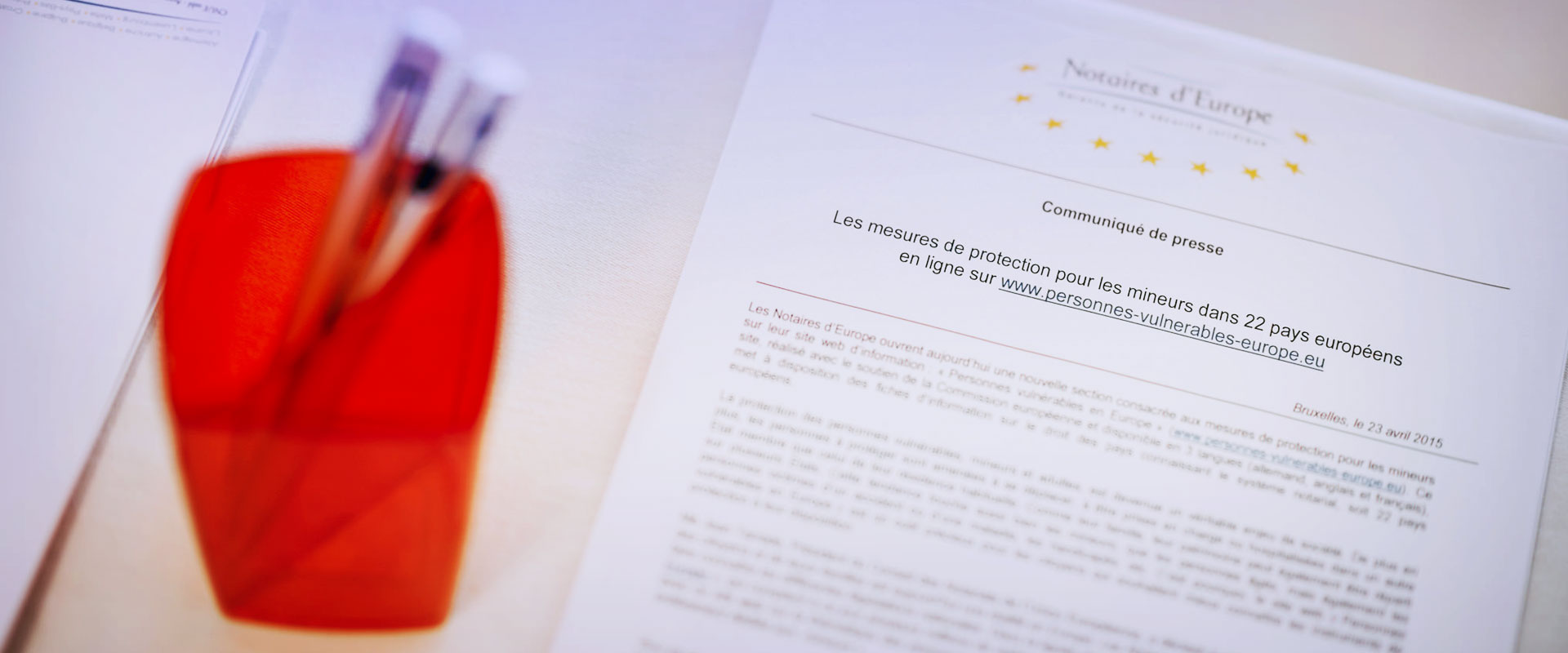
Bruxelles, 4 May 2020
Notaries of Europe Alongside Citizens and Businesses
–
During this health and economic emergency, Europe’s 45,000 notaries are personally and collectively committed to playing their full role in the community effort to overcome the pandemic and to mitigate as far as possible the significant personal losses that are and will be suffered by large numbers of citizens. This is why they are taking action to ensure that the public service of justice, which is an essential service of general interest, continues to be provided in all territories.
To this end, depending on national situations and in cooperation with their supervisory authorities, measures have been taken to combat the spread of COVID-19 and to continue to provide their services for citizens and businesses. Notaries continue to draw up urgent acts (such as a will for a person in poor health or acts with significant financial consequences) and, as far as possible, less urgent acts, proposing to postpone them where necessary in consultation with clients.
In these difficult times that the European Union is going through, notaries work as responsible professionals, in solidarity with the population as a whole and anxious to contribute, through their work, to supporting the economy. Europe’s notaries perform a function of public authority, which affects both the conditions under which their delegation of public power is exercised and the effects of the acts they draw up. This is why, even in a crisis situation, the notaries of Europe continue to work with the same standards of quality and efficiency, always in strict compliance with the national legal frameworks.
Of course, the economic consequences of the crisis are already being felt in their offices, as legal work is currently experiencing a slowdown. However, they are standing alongside their States and the European institutions to face the current and future challenges. They will continue to provide certainty for legal transactions on behalf of States, citizens and businesses.
Le CNUE in brief
–
The Council of the Notariats of the European Union (CNUE) is an official body representing the notarial profession in dealings with the European institutions. The CNUE includes 22 notarial organisations in the European Union, representing over 45,000 notaries and 200,000 staff.
News CNUE, 26 February 2020
CNUE Annual Report 2019
–
The CNUE Annual Report 2019 is now online > Read the report
The report provides a detailed account of the activities of the CNUE over the past year, including:
– The entry into force of the EU Matrimonial Property Regimes and Registered Partnerships Regulations on 29 January 2019 under an enhanced cooperation procedure involving 18 EU member states.
– Participation in the European Parliament’s “This time I vote” campaign. This pan-European and non-political campaign aimed to encourage as many people as possible to vote in the European elections in May 2019.
– The publication of the Notaries of Europe’s proposals for the European elections.
> Read the publication
With this manifesto, the CNUE intended to make a series of recommendations and proposals for future MEPs and members of the European Commission.
– The meeting in London, in the presence of the French Ambassador to the United Kingdom, Mr Jean-Pierre Jouyet, with British practitioners who were invited to share their views on the Brexit and the concrete consequences for citizens in terms of family law, inheritance law or the fight against money laundering.
– The redesign of the European directory of notaries, which lists the 45,000 notaries in Europe.
> See the website
– The organisation of the fourth edition of the Notaries of Europe Open Days with events in fourteen EU countries.
– The organisation of the “Europe in Action” exhibition at the European Parliament from 11 to 15 November 2019 and the first edition of the CNUE Innovation Award.
> See the website
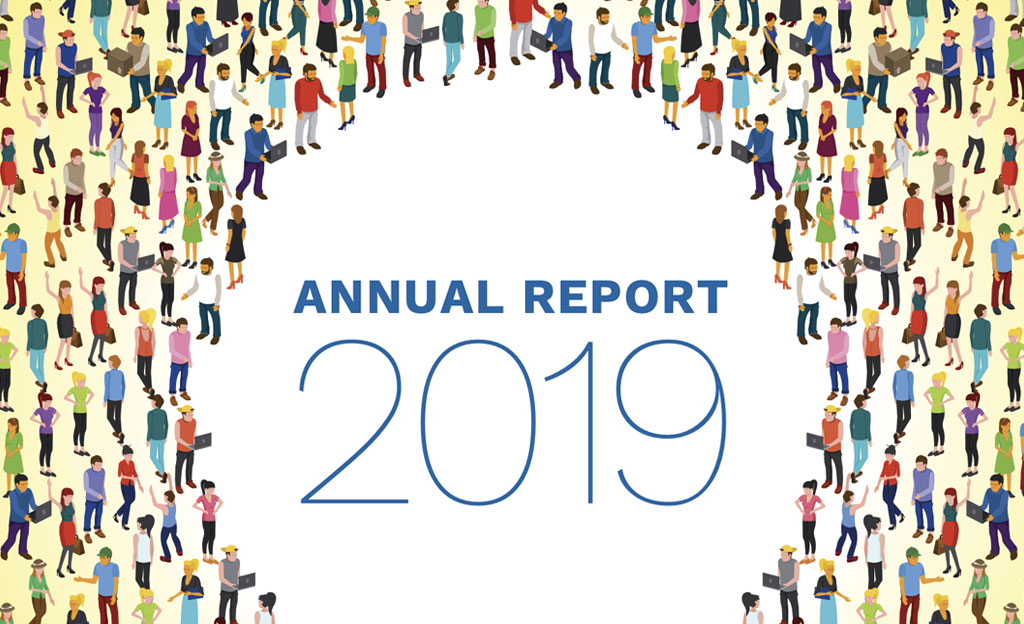
National news, 18 February 2020
12th Congress of the Spanish Notariat – Malaga, 7-8 may 2020
–
On 7 and 8 May 2020, Malaga will host the 12th Congress of the Spanish Notariat on the theme “Our ageing society: the main challenge of the century”, organised by the General Council of the Spanish Notariat. More than four hundred people are expected to attend, representing all spheres of civil society, especially the legal world.
The conferences and round tables will bring together experts from different fields (health, politics, economics, academia, sociology and law) to discuss an issue that concerns us all.
The importance of the subject is such that, for the first time in the history of the Spanish notary’s office, the congress will be open to institutions and professionals from civil society who can and must contribute their thoughts on what will be one of the most decisive phenomena of this century.
The agenda focuses on three issues: “respect for dignity versus protection of vulnerability”; “living to a hundred: personal planning” and “living to a hundred: social and political planning”.
Although there are many forums dedicated to analysing this topic from different angles, what they all lack is the legal guidance that is essential to properly integrate these issues and enable their implementation in practice, while fully respecting the dignity and freedom of the person.
The Spanish notarial profession is ideally placed to assume the responsibility of promoting an open congress to address the subject, with the aim of meeting this very need. Notaries are the guarantors of the autonomy and civil freedom of individuals in the most decisive aspects of their private lives, both personal and economic. But they are also the ideal witnesses to the internal history of our society and the first to detect many new needs and situations of vulnerability.

